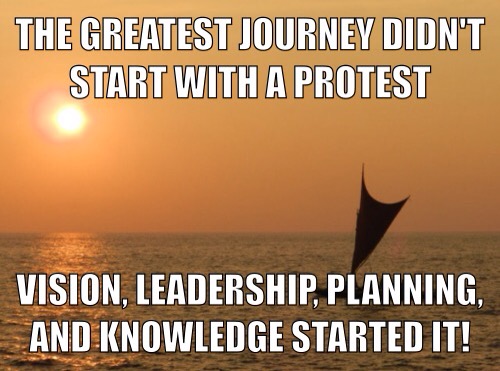I can’t tell you how disheartening it is to see more and more of the shill and troll accusations flying around by several of the anti-GMO supporters regarding Food Evolution. It’s maddening to me that a professor of nutrition is even using those terms and trying to back out of the film. So what’s wrong with this crier of shill and troll bit?
Plenty.

These are shills. Does it look human to you?
This is a troll. Does it look human to you?

This is my family. We indeed look human.
Can you see the difference between the trolls and shills and my family? The two images above are clearly not human and when people start resorting to name calling, it dehumanizes people. When you’re dehumanized to a troll or a shill, it’s easy to forget about the beating heart, the feelings, and thoughts of that person speaking out to you and challenging your beliefs.
When a person is no longer seen as human, it is easy to treat them badly. You can kick a troll and beat it into the ground, and you can throw that shill coin away. It’s just an object with no feelings and no life. When those objects are gone, it’s easy to forget about them. It’s abhorrent to do that to a human, but in reality, that is what we are doing when society uses fear and avoids facts in the discussions at hand. Once a person is seen as an object, it’s easy to do inhumane things to them. That’s the problem with calling people names like trolls and shills.
I’m deeply troubled by highly esteemed professors and celebrities going around calling others names. If they are leaders, does a leader seek to take away the human element of our world? Sure Food Evolution is a movie but it tells a powerful story of humans and what we’ve gone through. There are real stories in the movie and calling one’s story propaganda is hurtful. From the small papaya farmer in Hawaii to the African mother who is seeking to feed her children, we are no different from each other as humans. We bleed the same blood and we feel the pain of suffering. We want what is best for our families. I know there are others deserving the same comforts that I have which makes for a good quality of life. What’s wrong with stepping back and looking at the facts presented in Food Evolution that GM technology may be helpful? Are you not willing to learn the plight of others?
Brave people are willing to change their beliefs and lead us in the right way. Yes, you esteemed professors, you have a duty to your students and to the public to teach compassion and remind students that there’s a world far away from us that is affected by our actions. You can change your mind and know that others will thank you for it. You’ll face a lot of hate from such a challenge but be brave for the others that you will indeed help.
Please stop the troll and shill cries once and for all and start opening your heart to listen to the needs of your fellow human. May this story of biotechnology help others as it has helped my family. We are all human and need to help create that compassionate world for our children.

Just one of my little “trolls” that I love with all of my heart. She’s not propaganda and nor is she an object.






